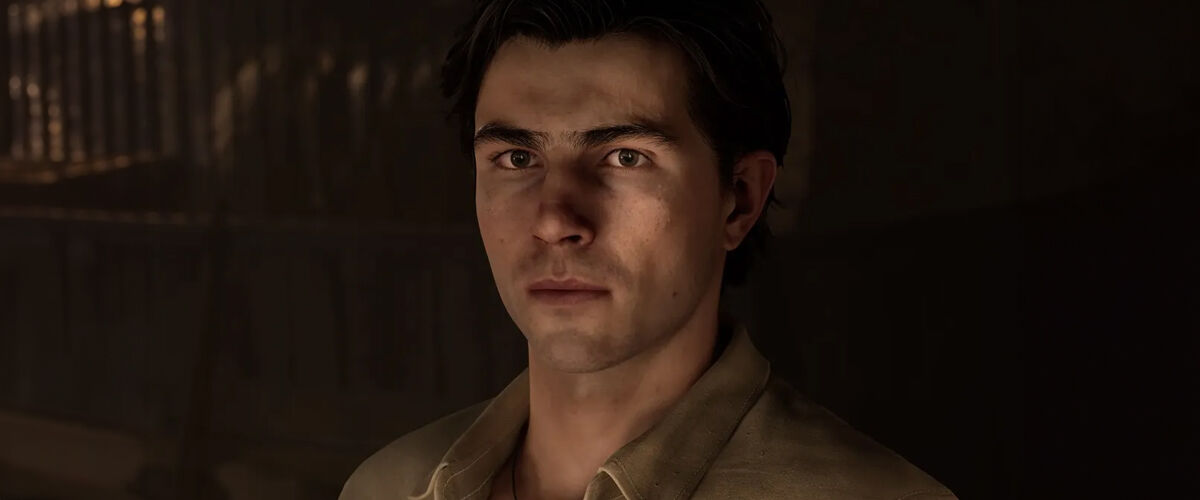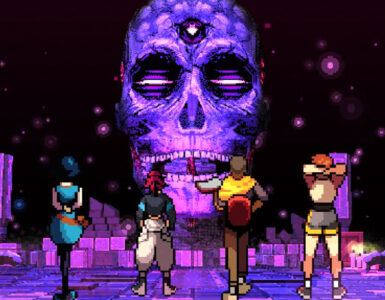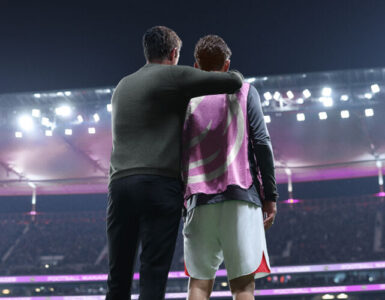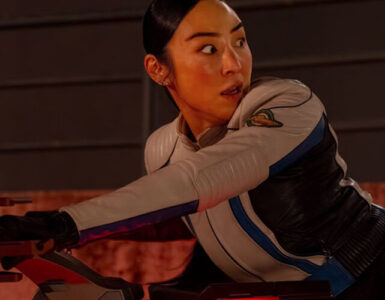Think motion capture (mocap), and most audiences think black full body suit with sensors, and haptic feedback with light markers, but there’s more to providing a reference for visual artists to work on, especially for video games, where everything is transplanted on a digital environment.
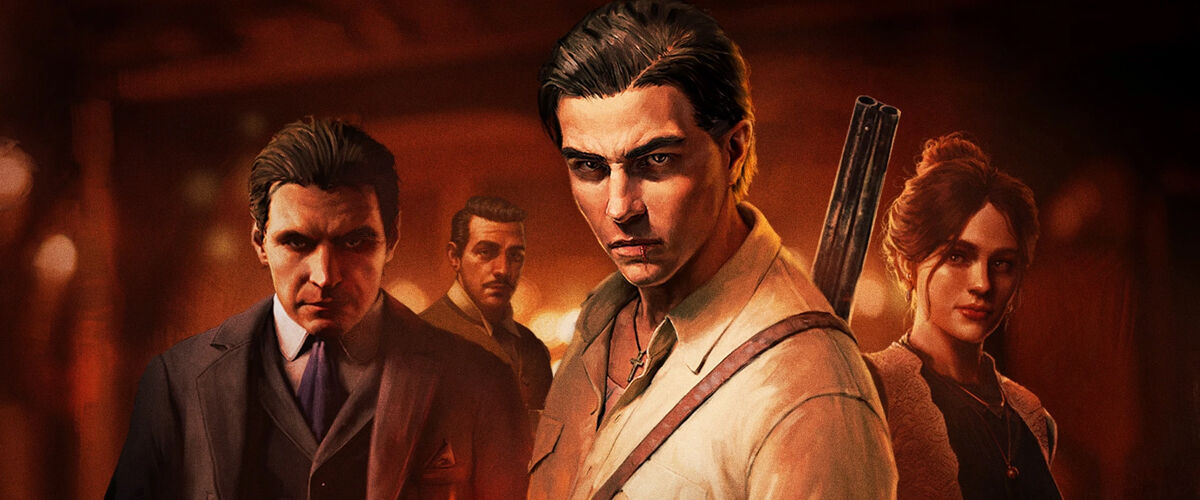
28-year-old Italian actor Riccardo Frascari experienced first-hand the challenges of interacting with nothing when he auditioned, and was selected to play lead protagonist Enzo Favara in Mafia: The Old Country, the latest fourth main entry in the long-running Mafia franchise.
Set in Sicily, Italy, in the early 1900s, the game follows Enzo Favara, a carusu or child miner who gets involved in the rise of the fictional Torrisi crime family, with Frascari lending his voice as well as his full body performance to portray the character, something that the actor, who made his acting debut in the 2016 Italian film, The Asteroids, wasn’t quite prepared for in his first video game role.
“There was one lingering question: What is it going to be like? Because I had never been on a mocap stage, I didn’t know what to expect,” he recalls in an exclusive interview with Geek Culture. “I had watched and observed some other actors on YouTube doing mocap work, so I was getting an idea of how it worked. But I wanted to still be surprised by the whole process.”
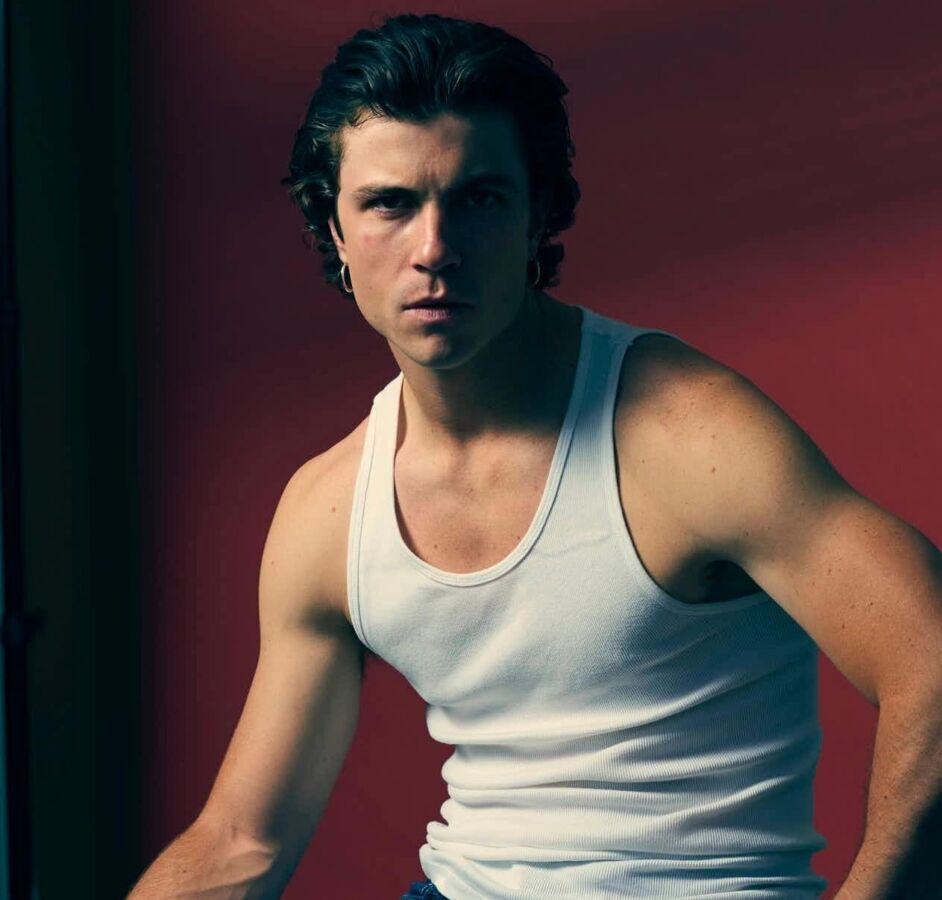
Still, the star did what he could at the time, researching the character and working on his accent alongside a dialect coach, ensuring that he found the right amount of Italian intonation when delivering his lines to balance authenticity without it sounding too stereotypical or cliche.
And then the day came when Frascari first stepped onto the mocap stage, and it was overwhelming.
“Right from the start, you’re surrounded by 165 cameras, capturing every moment at every second. And then there was the equipment, you have the body suit with the trackers, and then you have your face cam, a huge belt on top of your stomach that connects to the batteries, there’s so many things going on at once, and it’s loud.”
Indeed, we have come far since the days of 2D cutscenes or meticulously hand-animated 3D models, and the rise of mocap technology means that modern games often blur the lines between acting for traditional media like film and TV, but the capture process itself, as Frascari discovered, was quite different from what he was used to.
“You have to use a lot of imagination, you have props, but they’re not real props. If you have a table, it’s stripped bare; if it’s a bottle of wine, there’s nothing; there’s no liquid. If you’re smoking a cigarette, you’re pretending to smoke a cigarette. You also have no pockets to put things away, so somebody has to come from behind and grab it from you,” he recalls.
Due to the nature of mocap, everything on set is meant to be digitised, meaning that the props he handled were not accurate representations of the items, but rather placeholders meant to be translated post-shoot into a digital counterpart.
“It’s all these small, little differences that are the most challenging, things you have to get used to when you’re on stage and performing.”
Despite these challenges, Frascari admits that the transition to mocap after years of film, TV and theatre experience wasn’t particularly difficult, boiling down to the same process of researching a character and their background, memorising lines, rehearsals on stage, and letting muscle memory take over upon the call for “action”.
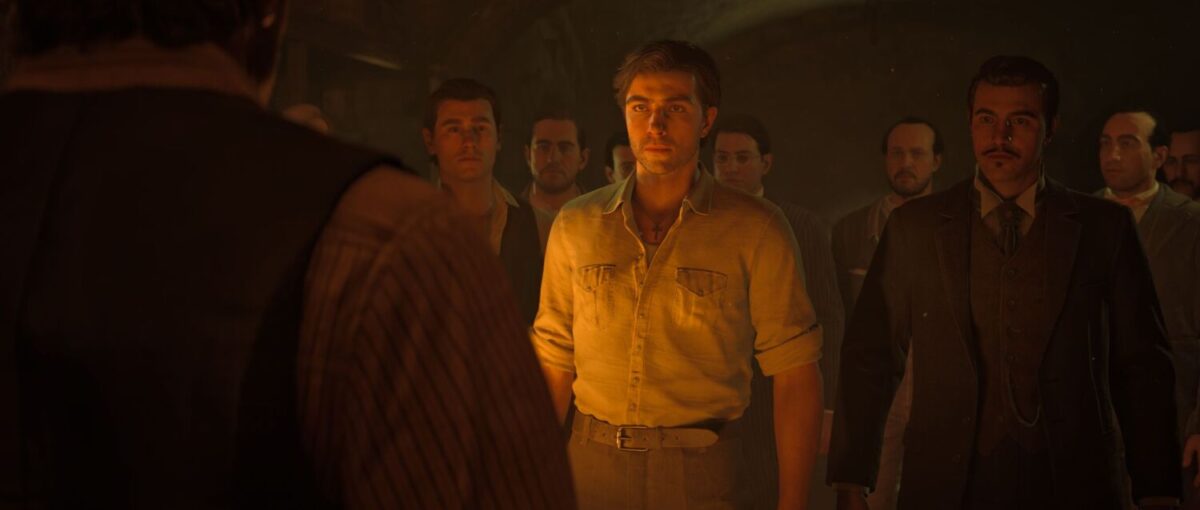
Of course, the process had its differences, especially due to the aforementioned tracking technologies and how sensitive they were.
“It’s a blend between movies and theatre, because you get the freedom of movement that you get on stage in theatre, and that use of imagination as well, but then with the subtlety that you would use on camera,” he explains.
“You have a face camera pointing at you the whole time, so your performance can’t be too big, as with the technology of these new cameras and animation, and they’re so detailed that even if you slightly move an eyebrow, it picks it up. So in stage, sometimes in theatre, you can scream and be louder with your expressions to get a message across, but on the mocap stage, you have to be more subtle.”
Due to the fact that everything was captured digitally, Frascari also couldn’t rely on the traditional video playback he was used to in films and TV, and instead only had a live 3D animation of an avatar as a reference.
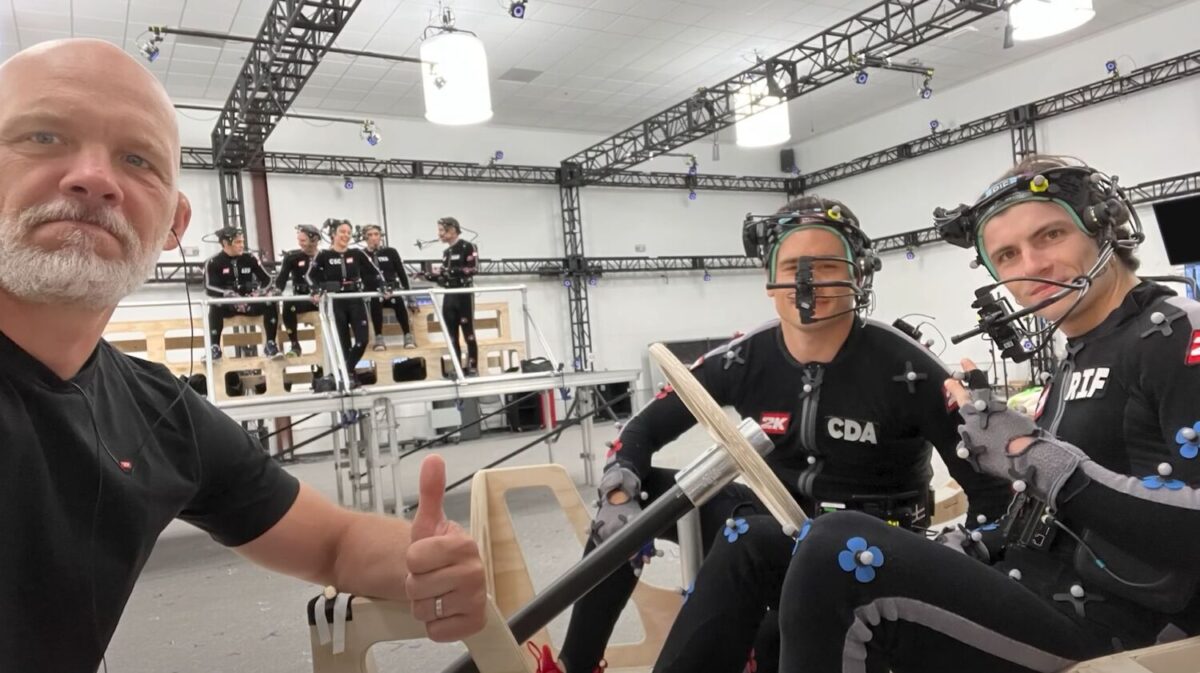
“There was this huge screen, which would play these human-looking avatars that moved as we moved. So, of course, the first thing that everybody did was start dancing,” he jokes, “but other than that, since we only had basic graphic animated videos as references for the cinematics before shooting, it gave us opportunities to be free to play around, be creative, and discuss new possibilities on how to approach a scene with the director.”
In other words, the whole experience of being in Mafia: The Old Country was quite different from actually playing the games, something that the star actually knew first-hand when the originaldebuted in 2002.
“I remember when I was a kid, I used to play the Mafia games, and most recently with Mafia: Definitive Edition,” Frascari recalls, “so when I discovered I was going to be part of this project, I picked up the controller again to immerse myself in the story and dynamics of the mafia world, and growing up with the series only to find yourself being a part of the game 20 years later, it’s just insane.”
Landing the role wasn’t smooth sailing, however, as the star admits that his first audition left much to be desired, believing that he had done a terrible job and not expecting a call back. But one did arrive, and the next thing he knew, he was offered the role, and not just for a mere side character, but the hero of the story.
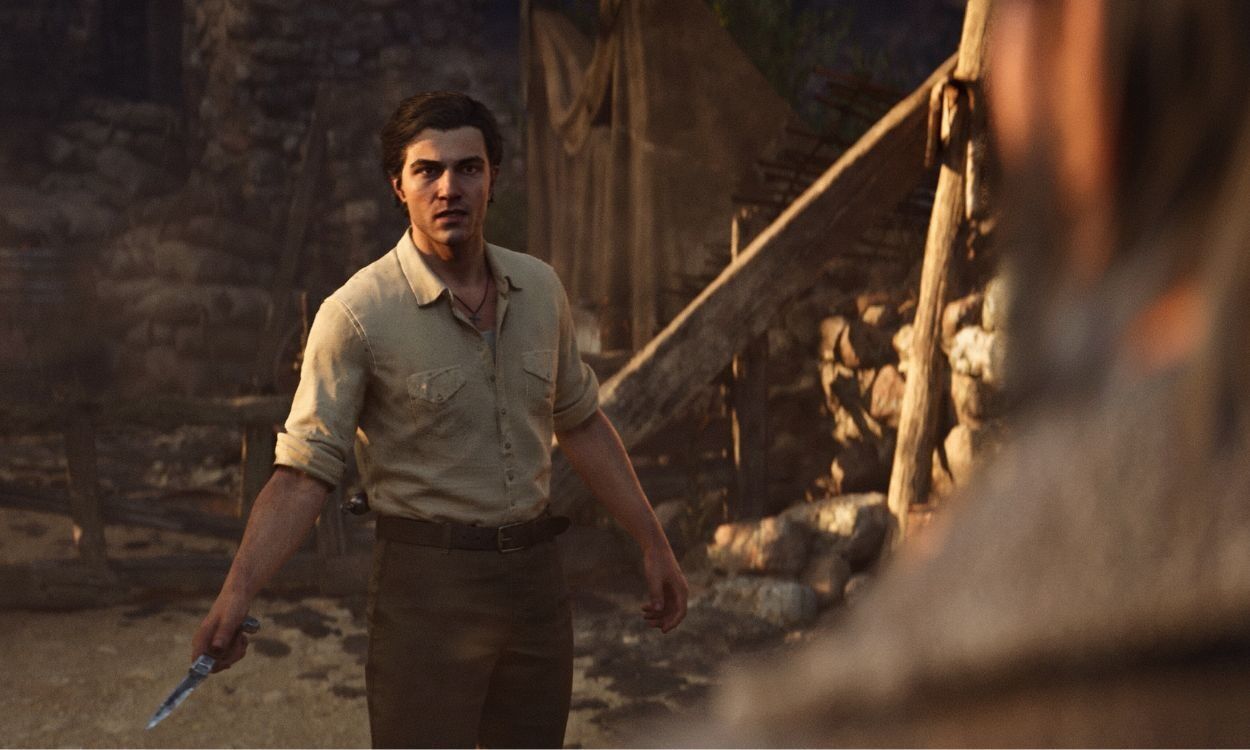
“It was one of those things where I never even thought that my career would take me to be part of something like this,” he exclaims, adding that he was caught completely off guard at the time, “In your mind, you’re always looking for something like movies and TV shows or theatre, and then eventually a video game comes along, and it’s totally unexpected, but a beautiful surprise.”
Still, it wasn’t all seriousness, as with any production, be it film, TV or video games, there was always an opportunity for hilarity, and the mocap process provided no shortage of memorable moments.
“It was very fun to dispose of dead bodies, because they were just dummies.” Frascari jokes, “So there were these wooden dummies, we actually gave them names, like Bobby, so we would say ‘Hi, Bobby’, and then ‘Bye, Bobby’ as we are tossing the body away. There were a lot of fun moments where we would just break character because we couldn’t keep it in.”
Pretending to ride the horses or cars seen in-game was another highlight, as, due to the nature of mocap, the actors couldn’t actually make use of a real horse or vehicle and had to make do with stand-ins.
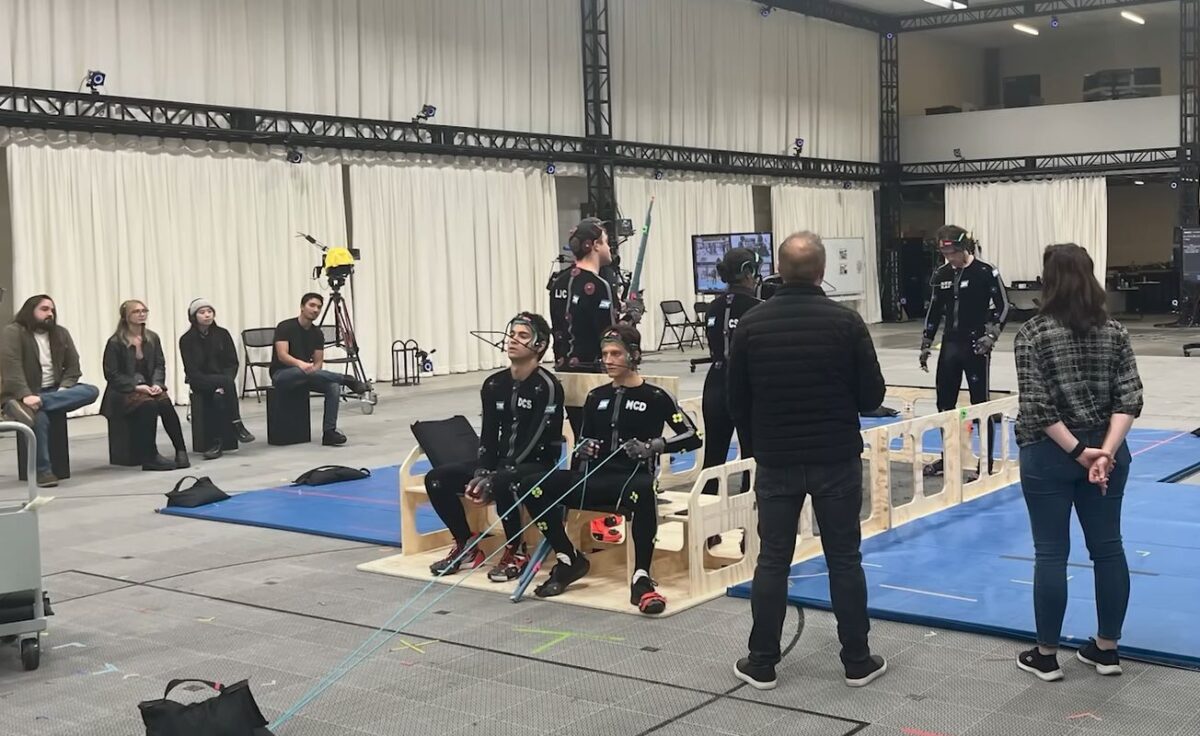
“They would bring in this really high structure, that was kind of shaped like a horse, and so for a few seconds I would pretend and simulate the movements of being on a horse, rocking back and forth, even emulating how to slow the ‘horse’ down and get off it. It’s the same for cars; we just had a big replica, a skeleton with the real dimensions of what it looks like in real life.”
And then there were the mannerisms Frascari had to consider, as he was portraying someone from the 1900s after all, and a Mafioso no less, meaning he had to ensure his body language and tone were presented in a way befitting of Enzo, to emulate the portrayal of someone who had to crawl their way up from the bottom.
“Enzo’s tone of voice and physicality were something that I needed to work on, because his past is something that could not be ignored,” he explains, “he grew up basically all his life in a sulfur mine, being a slave. So in dark places with not a lot of sunlight, with bad nutrition, with physical injuries. So I never wanted to play him too bubbly and gassy, and that’s why his movements are always very contained and limited.”
“And I always wanted to play him with kind of a third eye or fourth eye, always on the lookout for who might be trying to stab you. And so he doesn’t really trust anybody and keeps most people at arm’s length.”
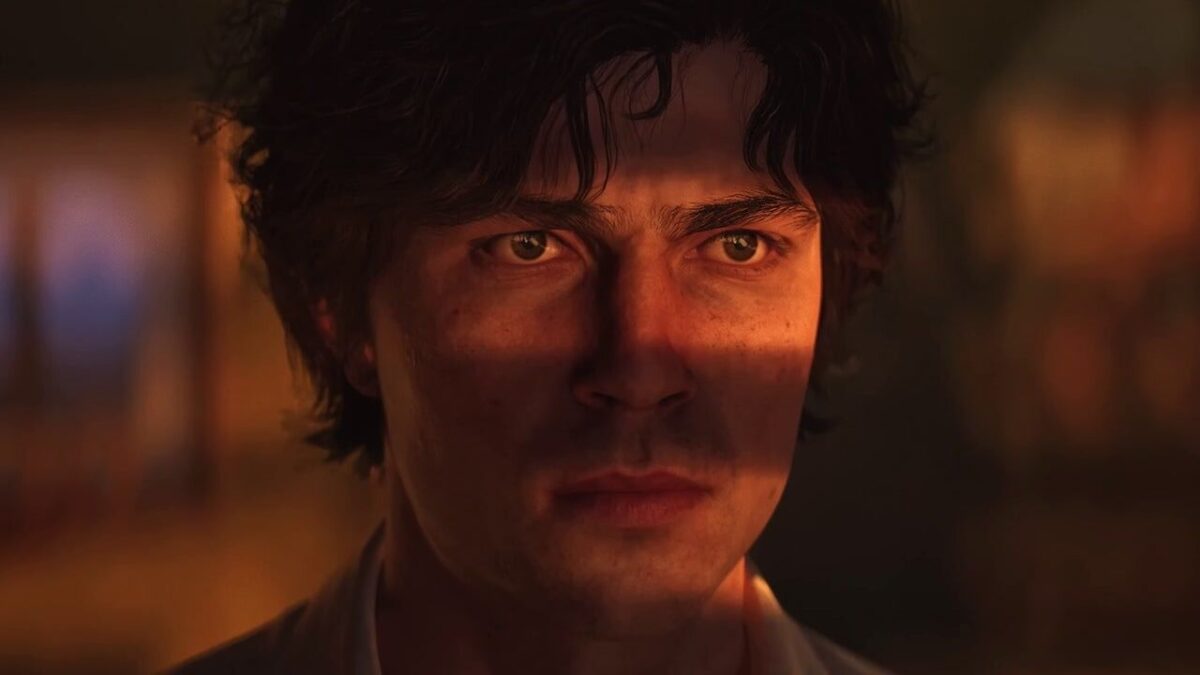
“It’s these very specific physicalizations of pain, which is the emotional pain that Enzo had been through, which was the most interesting part, to create these little things and give your input into creating something that resembles a real human being.”
When it came to the most challenging part of the entire mocap experience, Frascari explains that it surprisingly wasn’t all the little details he had to add to his performance, but rather what he needed to remove.
“When you watch movies and TV shows, it happens all the time, you see the actors just brushing their hair with their hands randomly or rubbing their face, and when playing a scene, they’re tying their buttons on their shirt or their pants, these are actually the things we avoid,” he explains.
“For the animators, is a lot of hours of work. Every single time you adjust your hair, they have to make the animation of the hand going through the hair, and even with the buttons, the animation takes time, and we want to remove the stuff that will complicate post-production.”
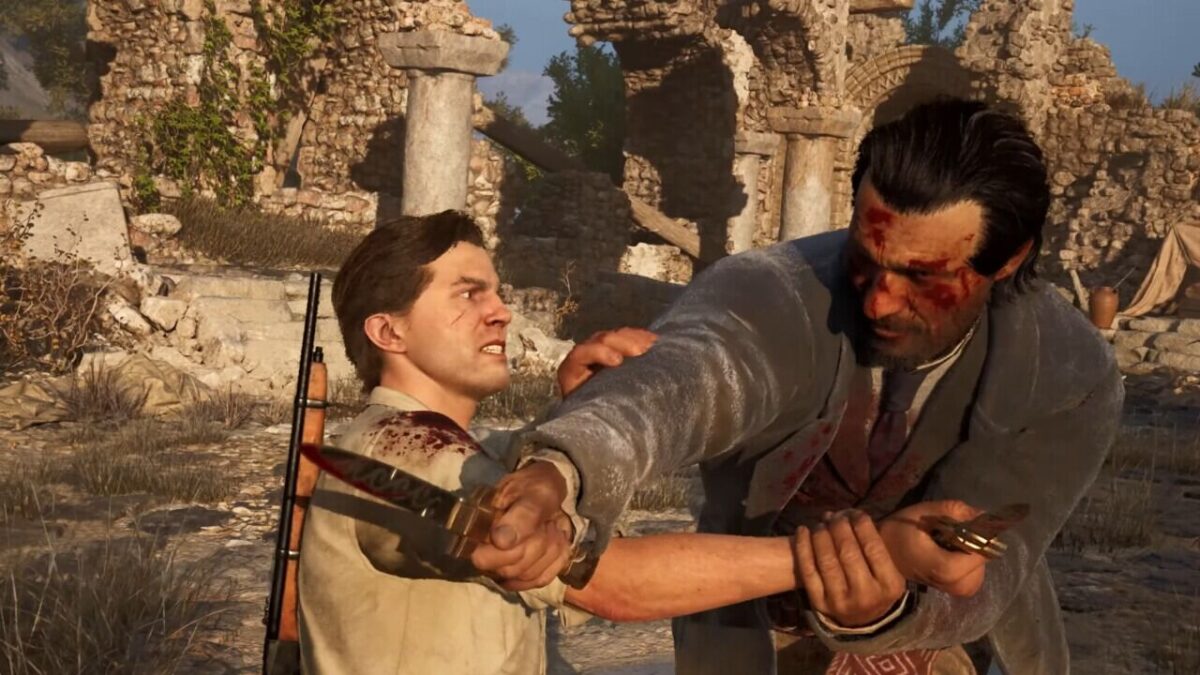
“This actually gives us a more grounded and simple performance, which allows us to connect more directly, eye-to-eye with our scene partner, and to use our imagination and avoid making unnecessary movements, which was a good acting lesson too,” he adds.
And lessons were something Frascari gained constantly along the way, working alongside his castmates Johnny Santiago (Don Torrisi), Carina Conti (Isabella Torrisi), Alberto Frezza (Luca Trapani) and Christian Antidormi (Cesare Massaro).
“Because of the game and the narrative, with every one of the characters, it was a different kind of relationship on stage, be it Don Torrisi’s menacing boss figure, the love story with Isabella and Luca, who was the mentor, I learnt from all of them, and it’s always interesting to observe how every actor has different process, which you can take things from each one of them and then use them if you want to.”
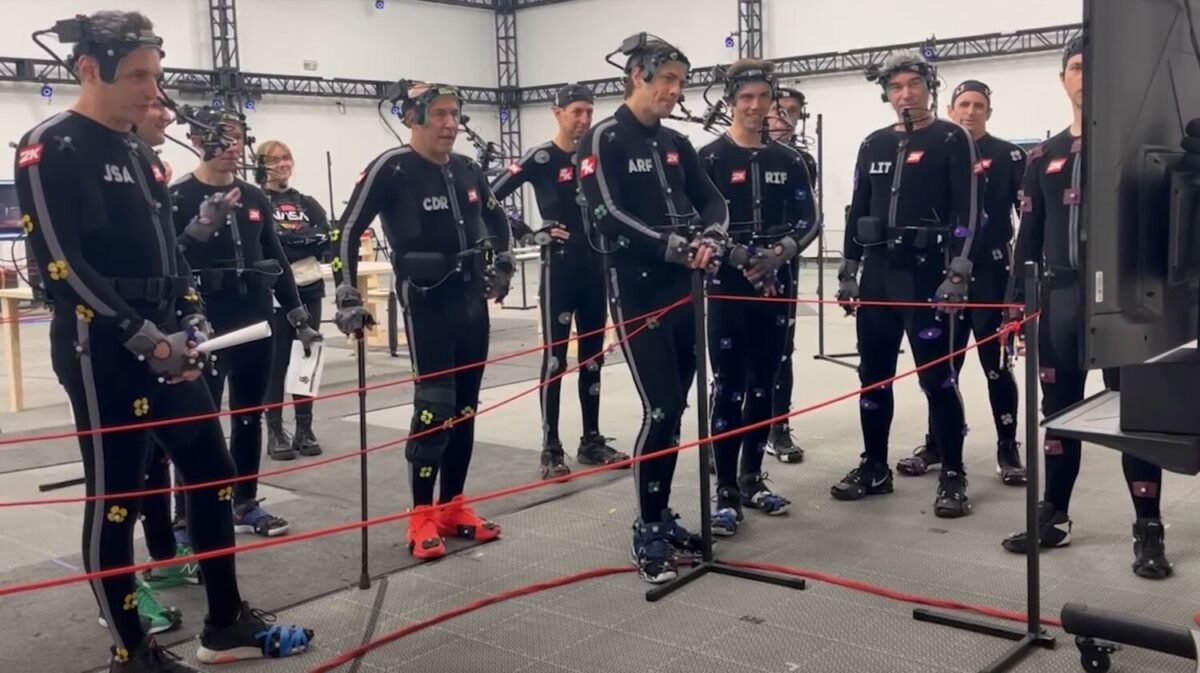
Looking back on his mocap experience and also to the future, Frascari exclaims that if he ever has the chance to take on another video game role, especially if it’s one of his favourite titles like The Last of Us and Assassin’s Creed, he would do it in a heartbeat, with his experience with Mafia: The Old Country and Enzo fueling a newfound love for video game acting.
“I’ll admit, it was weird to see myself as Enzo at first, but being a part of a video game is an incredible experience. To think, in 20 or 30 years time, I can look back and see myself as a playable character in a video game, I think that’s amazing.”

